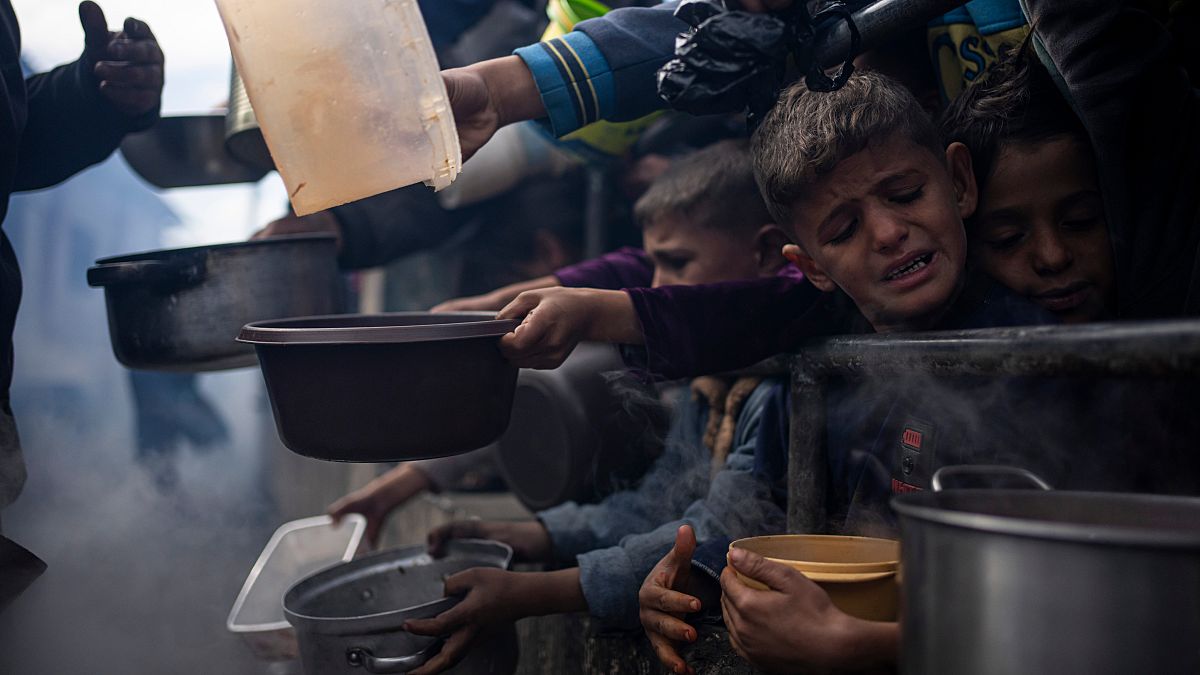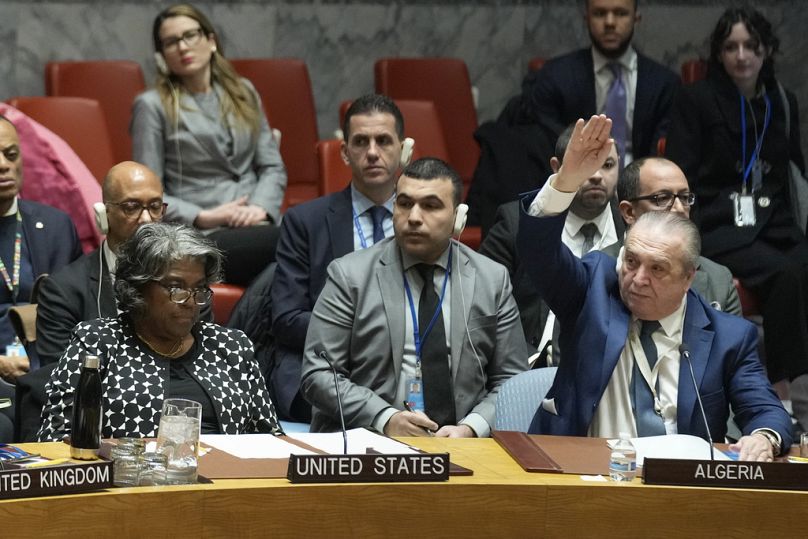All the latest developments from the Israel Hamas war.
US vetoes ceasefire resolution at UN
The United States vetoed an Arab-backed UN resolution on Tuesday demanding an immediate humanitarian cease-fire in the Israel-Hamas war in the embattled Gaza Strip.
The vote in the 15-member Security Council was 13-1, with the United Kingdom abstaining.
The result reflects the broad global support for ending the more than four-month war that started with the Hamas massacre in southern Israel that killed about 1,200 people and saw 250 others taken hostage.
It is the third time the US has vetoed a Security Council resolution demanding a ceasefire in Gaza.
The Biden administration had said in advance it would veto the resolution because of concerns it would interfere with efforts to arrange a deal between the warring parties aimed at bringing at least a six-week halt to hostilities and releasing all hostages.
Gaza's children face acute malnutrition
The nutrition status of pregnant women and children in Gaza is worsening, posing grave threats to their health, according to a report released by the Global Nutrition Cluster.
More than 80 per cent of households in Gaza have access to less than one litre of safe water per person per day, the report found.
It also said there has been an increase in food insecurity, lack of diet diversity and deteriorating infant feeding practices.
In northern Gaza, one in six children is "acutely malnourished" and about 3 per cent require "immediate treatment," the NGO wrote.
More than 29,000 Palestinians killed
Gaza's Hamas-run health ministry on Monday said more than 29,000 Palestinians had been killed in the Israeli assault that began after the 7 October massacre.
Despite the mounting casualties and growing international pressure, Israeli Prime Minister Benjamin Netanyahu has vowed to continue the offensive until “total victory”.
There are fears the Palestinian death toll will continue to rise.
Last week Netanyahu announced Israel's military would soon invade the southernmost city of Rafah on the Egyptian border, where over half of Gaza’s 2.3 million people have sought refuge from fighting elsewhere.
Around two-thirds of the Palestinian dead are women and children, with more than 69,000 people of the enclave's inhabitants now wounded.
Gaza's hospitals have been overwhelmed and are only partially functioning thanks to a combination of Israeli strikes and supply shortages.
The war began when Hamas-led militants stormed southern Israel on 7 October, killing some 1,200 people, mostly civilians. They took around 250 men, women and children hostage; many of them are still being held, and their release has been at the centre of stop-start ceasefire negotiations.

